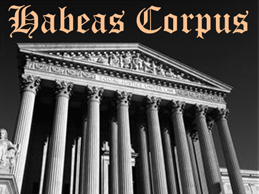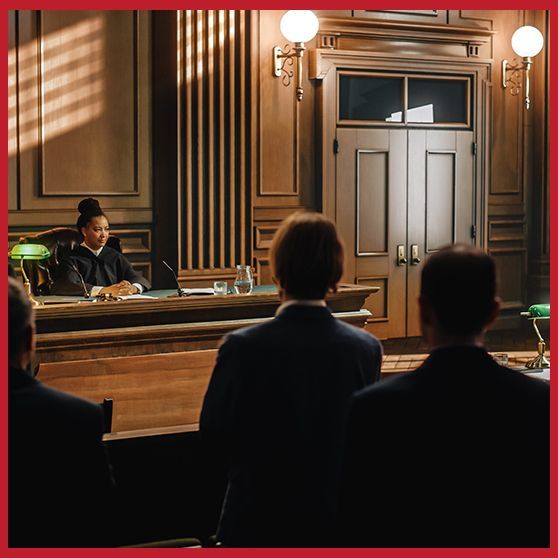Comprehending the Role of a Post-Conviction Attorney in Seeking Justice After a Criminal Conviction
In the complex landscape of post-conviction lawful procedures, the role of a post-conviction legal representative is critical in browsing the path to justice after a criminal sentence - alaska federal habeas corpus. As the quest of justice prolongs beyond the boundaries of first process, the function of a post-conviction attorney emerges as a sign of hope for those looking for to fix oppressions and recover their rights within the lawful system.
Post-Conviction Attorney's Investigative Work
Post-conviction legal representatives take part in meticulous investigatory work to uncover brand-new proof, procedural mistakes, or misbehavior that could possibly result in rescinding a sentence. This investigative phase is vital in the post-conviction procedure as it aims to recognize any type of neglected details or lawful missteps that may have influenced the result of the first trial. Post-conviction lawyers explore situation data, witness statements, and lawful paperwork with a fine-tooth comb, looking for any kind of discrepancies or abnormalities that could be premises for charm.
Via detailed examination, post-conviction lawyers intend to clarify prospective oppressions that may have taken place during the original trial. They may carry out meetings, talk to specialists, and review forensic proof to develop an engaging instance for their customers. By inspecting every facet of the legal proceedings, post-conviction lawyers function relentlessly to reveal any kind of variables that might have influenced the decision. Eventually, their investigatory job plays an essential function in the quest of justice and the potential turnaround of wrongful sentences.
Crafting Appeals and Petitions
In the pursuit of justice after a conviction, competent attorneys carefully craft appeals and applications to existing engaging arguments for the reconsideration of lawful choices. Crafting appeals and petitions requires a deep understanding of the lawful system, interest to detail, and strategic thinking. Post-conviction attorneys analyze test records, recognize prospective mistakes or infractions of rights, and develop legal debates to challenge the sentence or sentence.
When crafting a charm, lawyers concentrate on highlighting lawful mistakes that might have influenced the end result of the situation. They research instance law, statutes, and lawful precedents to support their debates. Requests, on the various other hand, might include providing new proof that was not readily available during the trial or demonstrating modifications in the regulation that require an evaluation of the sentence.
Additionally, post-conviction legal representatives should comply with strict procedural regulations and due dates when filing appeals and requests. They should offer their arguments plainly and persuasively to encourage the court to grant relief to their customers. Via thorough crafting of allures and requests, post-conviction lawyers make every effort to safeguard justice for individuals who have been wrongfully convicted or unfairly punished.

Pursuing Post-Conviction Alleviation
Post-conviction alleviation encompasses a range of lawful mechanisms designed to challenge the validity of a sentence or sentence. Post-conviction legal representatives play a crucial function in navigating these intricate treatments, guaranteeing that all legal alternatives are discovered to correct oppressions that may have occurred during the test or sentencing phase.
One usual type of post-conviction relief is submitting an application for post-conviction alleviation, normally based on claims of inadequate support of counsel, prosecutorial misconduct, newly found evidence, or constitutional infractions. Experienced post-conviction attorneys have the skills and knowledge necessary to identify viable lawful insurance claims, carry out investigations, and existing compelling arguments to secure alleviation for their clients.
Using Forensic Evidence
When testing a conviction or sentence, the critical usage of forensic proof can be a powerful tool in post-conviction legal proceedings. Forensic proof incorporates a wide variety of clinical methods made use of to explore criminal offenses and develop facts in court. Post-conviction attorneys can leverage forensic proof to challenge the legitimacy of sentences by offering new scientific searchings for that were not offered throughout the original test.

Participating In Sentence Alterations
Post-conviction attorneys may discover the opportunity of sentence adjustments as a legal avenue to address disproportionate or unfair sentences bied far in criminal cases. Sentence modifications entail seeking adjustments to the regards to an offender's sentence after a conviction has happened. These adjustments can consist of lowering the length of a sentence, altering the kind of punishment imposed, or exploring alternative sentencing alternatives.
Post-conviction legal representatives can pursue sentence alterations via numerous legal systems, such as filing motions for sentence decrease, appealing for thoughtful release, or negotiating appeal bargains for reduced sentences. They must carefully evaluate the situations of the instance, assess the lawful grounds for seeking a modification, and existing engaging debates to the court sustaining the need for a modified sentence.
Taking part in sentence modifications calls for a detailed understanding find more info of criminal law, punishing guidelines, and the details treatments associated with looking for post-conviction relief. Post-conviction legal representatives play an important role in promoting for reasonable and just end results by challenging sentences that are unduly severe or do not straighten with the concepts of justice.
Conclusion
Finally, the duty of a post-conviction lawyer is important in looking for justice after a criminal sentence. Via investigatory work, crafting appeals and requests, pursuing post-conviction relief, utilizing forensic proof, and participating in sentence alterations, these attorneys play a crucial role in promoting for their customers and guaranteeing that their rights are upheld within the criminal justice system. Their devotion and proficiency are crucial in navigating the intricacies of post-conviction proceedings and achieving a fair result for people dealing with criminal convictions.